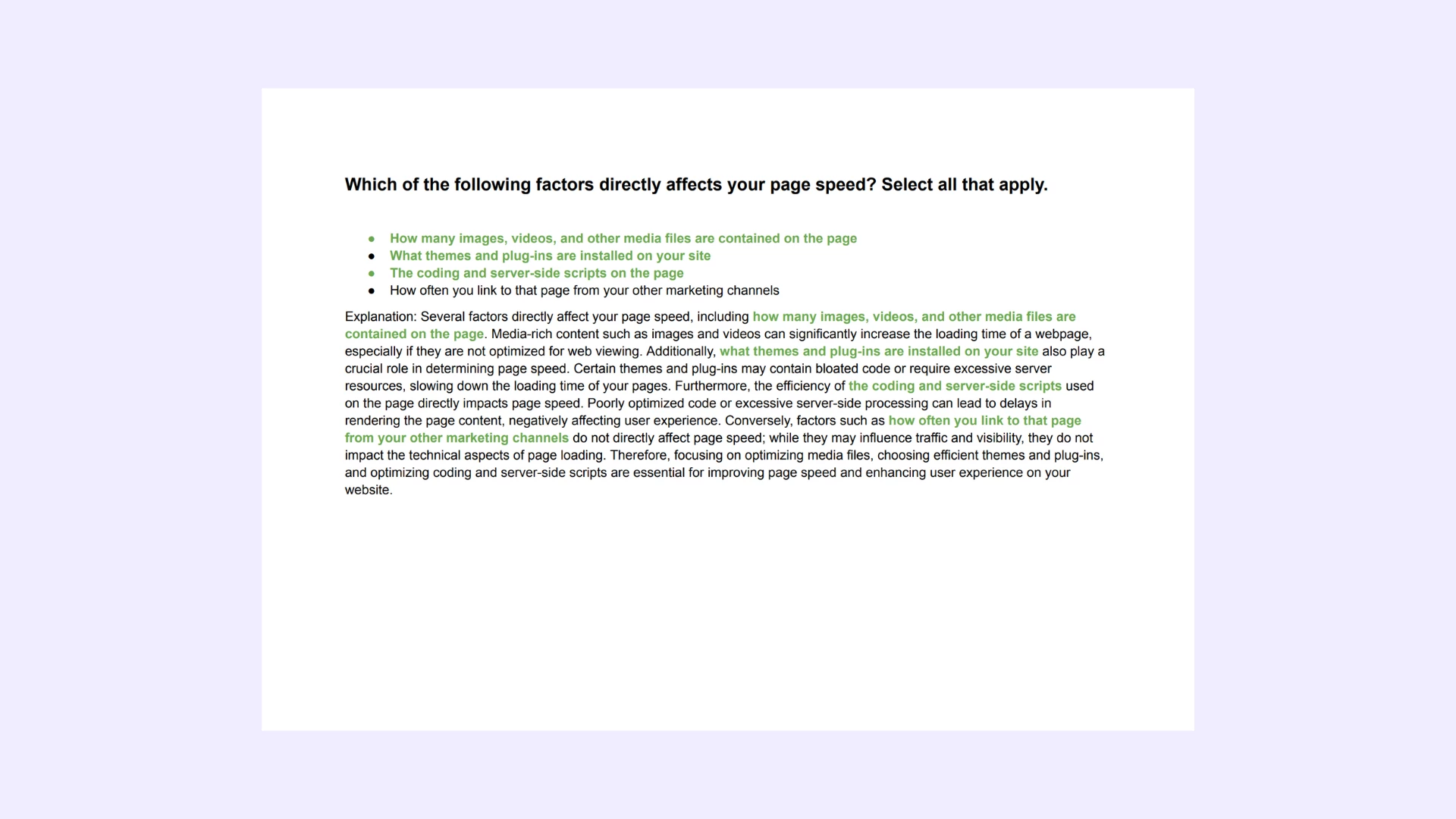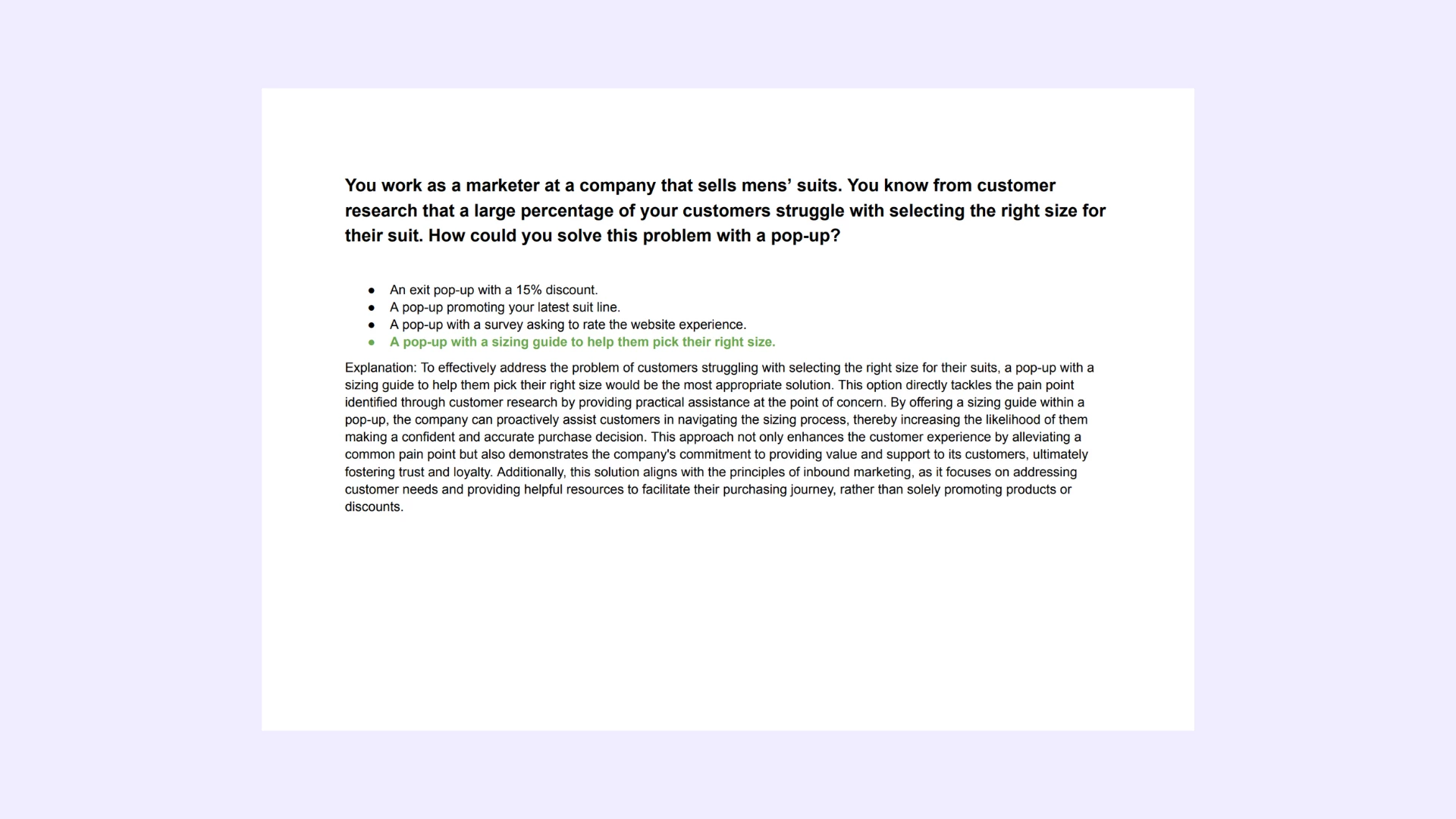All of the following impact a website’s ability to rank on a search engine results page EXCEPT:
URL
Page title
Meta description
Header tags
Site architecture

HubSpot Roll. Includes Answers for Every Real HubSpot Certification Exam.
All-in-One: Get all HubSpot exams answers with explanations in one bundle. This package includes answers for every current HubSpot certification. Regular updates to reflect the latest exam version. -> See what's included.


Need a single cerification exam answers? Check out our -> list of certification exams answer keys. Learn Smarter. Obtain or Renew your certificates with peace of mind!
Explanation: All of the following impact a website’s ability to rank on a search engine results page EXCEPT:
Explanation: The correct answer is **Meta description**. While URL, page title, header tags, and site architecture all significantly impact a website's ability to rank on a search engine results page (SERP), the meta description does not directly influence rankings. Instead, the meta description serves as a brief summary of the page's content displayed beneath the title tag in search results. While it doesn't directly impact rankings, a well-crafted meta description can enhance click-through rates by providing users with a concise preview of the page's content, encouraging them to click on the link. However, search engines primarily use meta descriptions to provide users with additional context about the page's content rather than for ranking purposes. Conversely, URL structure, page titles, header tags, and site architecture play crucial roles in SEO, as they help search engines understand the content, relevance, and structure of a website, thereby influencing its ranking position in SERPs. Therefore, recognizing that the meta description does not directly impact a website's ability to rank on a search engine results page is essential for understanding the key factors that affect SEO performance and visibility.

Special Bundle Offer HubSpot Roll. All in One
Note: We conduct daily checks for updates on the exam, ensuring that the file contains the most recent questions from the actual certification program.
Questions | Answers | Explanations. FREE Updates.
You may also be interested:
- Special HubSpot bundle offer - all HubSpot exams in one
- HubSpot CMS for develpers certification exam answers
- HubSpot CMS for develpers II certification exam answers
- HubSpot content hub for marketers certification exam answers
- HubSpot content marketing certification exam answers
- HubSpot contextual marketing certification exam answers
- HubSpot digital advertising certification exam answers
- HubSpot digital marketing certification exam answers
- HubSpot email marketing certification exam answers
- HubSpot frictionless sales certification exam answers
- HubSpot growth driven design certification exam answers
- HubSpot inbound certification exam answers
- HubSpot inbound marketing certification exam answers
- HubSpot inbound marketing optimization certification exam answers
- HubSpot inbound sales certification exam answers
- HubSpot integrating with HubSpot I foundations certification exam answers
- HubSpot marketing hub software certification exam answers
- HubSpot reporting certification exam answers
- HubSpot revenue operations certification exam answers
- HubSpot sales enablement certification exam answers
- HubSpot sales hub software certification exam answers
- HubSpot sales management certification exam answers
- HubSpot sales software certification exam answers
- HubSpot seo certification exam answers
- HubSpot seo II certification exam answers
- HubSpot service hub software certification exam answers
- HubSpot social media marketing certification exam answers
- HubSpot social media marketing II certification exam answers